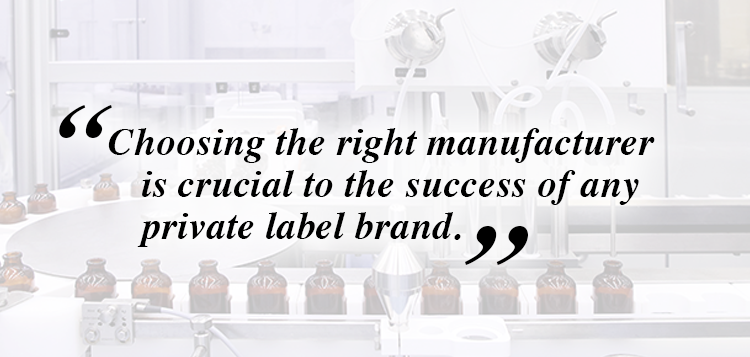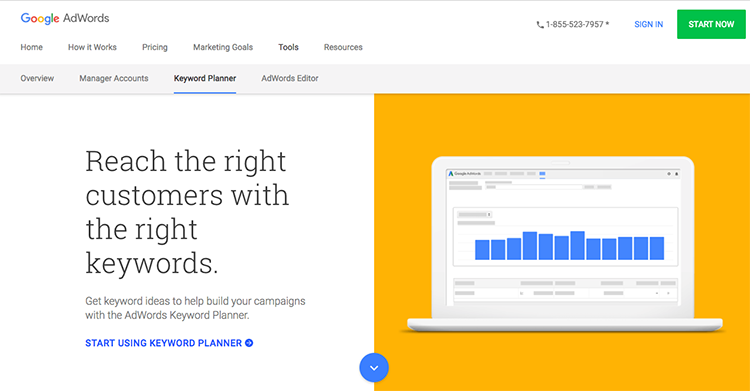
Nov 6, 2017
How To Source the Best Private Label Manufacturer
Whether it’s a private label skin care product or some other private label item, merely having a high-quality product isn’t enough to beat the competition. To reap the benefits of private labeling—the ability to create your own unique brand, the ability to control marketing and pricing for your product, etc.—you need to have the right partners in place. The most important of those partners is the manufacturer.
Choosing the right manufacturer is crucial to the success of any private label brand. You need to find private label skin care manufacturers that are dependable to reproduce your product faithfully and get it to you in a timely fashion. You also need to find a manufacturer that provides a high-quality product, but that doesn’t charge you an unaffordable price for the service. Balancing these factors while shopping around for a manufacturer is easier said than done.

Understanding the Hurdles
The first step to finding a good manufacturing partner for your private label products is understanding why private labelers struggle with this step in the first place.
First off, many retailers that get into the private label business have little to no experience working with manufacturers. Retailers that have exclusively stocked the products of other brands in the past have dealt extensively with suppliers but often haven’t interacted with manufacturers at all. As a result, there are usually no connections or existing relationships that retailers can draw upon to strike up manufacturing deals. Most private labelers start from scratch here.
Secondly, the choice of manufacturer is a high-stakes decision. A highly-priced manufacturer might produce a terrific product for you but might also make it impossible for your business to maintain decent profit margins. Just going for the lowest-priced manufacturer, though, can compromise the quality of your products, also making it difficult to turn a profit. Choosing the right manufacturer, then, turns into a complicated balancing act.
The Crucial Step to Finding a Manufacturer: Research
The best way to navigate the hurdles described above is to make sure you’re well-informed. Acknowledge that you aren’t going to secure a manufacturer within a day or two of deciding to produce a private label product. Making impulse decisions without the knowledge to back them up is the easiest way to end up in a situation where you’re paying too much for premium product production or too little for an inferior product. In fact, you might not even have a baseline in your head that you can use to judge which prices are high and which are reasonable or to figure out whether a specific manufacturer is the right one to approach about your intended product.
Said another way, you need to do your homework.
Depending on where you are in your business plan, your homework might start in different places. For instance, if you know you want to get into the private label skin care market, you can jump right to researching potential manufacturing partners. If you know that you want to produce a private label product but aren’t sure what kind of product you want to offer, you will need to do market research.
Perform Market Research for Your Private Label Product
You can offer virtually any type of product as a private label item. From electronics to tools to clothing and apparel, almost no market is inherently off-limits to private labelers. With that said, there are some types of products that are better for private labelers to pursue than others. For example, if a variety of product isn’t in particularly high demand, then there probably isn’t a market there to justify building a private label brand.
Private label or not, any entrepreneur thinking about creating a new product needs to determine if there is a market need for it. Assessing marketplace demand is one part of this process. Looking at pricing is another. Is there a popular national brand that you can undercut with a lower price? Surveying the competition is also essential. Is the market you are considering already populated with other private label products? If so, will your product offer some unique feature or facet that makes it competitive?
In short, you need to figure out if there is a pain point that you can solve with a private label product. In some cases, that pain point is going to be the price. Users of a national brand might think the products that brand offers are too expensive for what they do. Offering comparable products at a lower price point solves this particular pain point. In other cases, that pain point might be the lack of a specific feature in a product marketplace. Consumers who can’t find a product that meets a certain need might appreciate a private label product that does something the national brand version can’t do.
 Google Adwords Monthly Volume Chart
Google Adwords Monthly Volume Chart
To start your research, use sites like Amazon to see what people are buying. Use Google AdWords Keyword Planner to see what people are searching for in different markets or product categories. Zero in on a product that you think could benefit a substantial audience. Then, start figuring out what will make your product unique, what the value proposition will be, and most importantly, how you will make or build the product. You need a prototype—be it an electronic design or a private label skin care formula—before you start shopping around to different manufacturers.
If you don’t have experience in something like skin care formulation, it will be important to choose a manufacturer whose core competencies include your needs, such as formulation. For example, Evora has a full-time team of formulation chemists in our Research & Development department. Being able to work with a manufacturer that can execute your vision and fill in the expertise gap is the difference between failure and success.

Finding and Researching Manufacturers
Knowing exactly what type of product you want to build your private label business around will make finding a manufacturer much, much easier. This biggest reason is that very few manufacturing companies are jacks of all trades. Some specialize in apparel. Others focus on tools and hardware. Others might be go-to entities for electronics manufacturing. It stands to reason that you aren’t going to go to an electronics manufacturer to ask for a quote for private label skin care manufacturing. Instead, you are going to find a company that specializes in skin care (like us!) and cosmetics products and get a quote from them.
There are a few resources you can use to start researching manufacturers. Google is invaluable for finding manufacturers linked to specific keywords or product types. You can probably build your preliminary list of potential manufacturers just by spending an hour or two conducting different variations of a Google search.
There are also websites like Alibaba, which are explicitly meant to help businesses find global manufacturers. One of the issues with these types of sites is that they will typically link you with overseas suppliers. Foreign manufacturers can sometimes save you money, but they can be harder to work with. Navigating language and cultural barriers is a challenge, especially if you are trying to do everything via phone or email. Overseas manufacturing will also always take longer, because of the added shipping and customs steps. Make sure you thoroughly research the disadvantages of overseas manufacturers before being enticed by the low cost
With a domestic supplier, it’s going to be easier to establish a working relationship that is a good fit for your business. Domestic manufacturers are beholden to all United States regulations and quality standards, which means you often end up with a higher quality product. It’s also easy to secure your payment and service or to act if your manufacturer fails to uphold their side of the boundary. Working abroad is more of a roll of the dice, making it a slightly uncomfortable choice for first-time private labelers especially.
You can also sometimes get manufacturer referrals directly from retailers who are selling the kind of product you want to make. Going to boutique shops and stores and asking what manufacturers they use is good market research. If they aren’t willing to tell you, you can often find the information on the product labels themselves. This strategy is especially smart because it allows you to survey your competition up close and assess the quality of their products. You can start to prioritize your manufacturer list based on your product quality tests.
Beyond Research: Approaching Manufacturers and Navigating Toward a Deal
Once you have a list of potential manufacturers, it’s time to get active and start reaching out to them directly. Having conversations with different manufacturers will tell you a few things, including:
- Whether they have the goods or materials necessary to produce your product
- What their pricing looks like
- Whether the materials and factory processes meet your brand quality standards
- If they have Minimum Order Quantities (MOQs) on the products you want
- What kind of fees they charge (for private labeling, packing, shipping, etc.)
- What bulk pricing benefits they offer
- What other services they provide (such as label or packaging design, order fulfillment, etc.)
Once you’ve talked to a few manufacturers, you can start crossing suppliers off your list based on factors like price and additional services or benefits.
Your manufacturer “interview” process should also include requests for product samples, at least from your highest-interest candidates. Ultimately, you want to find a manufacturer that will do your brand proud with a good product. If a product sample is sub-standard, it doesn’t matter what the price is, how good the bulk order benefits are, or how easy shipping is. You need a manufacturer who can do your product justice at a price that allows you to maintain healthy profit margins. If a prospective manufacturer fails in either of those categories, take them off your list and keep looking. Eventually, you will find the right fit.
Depending on your needs, Evora Worldwide can be a great option for purchasing products to private label. If you are looking for white label skincare, reach out to our other division Onoxa